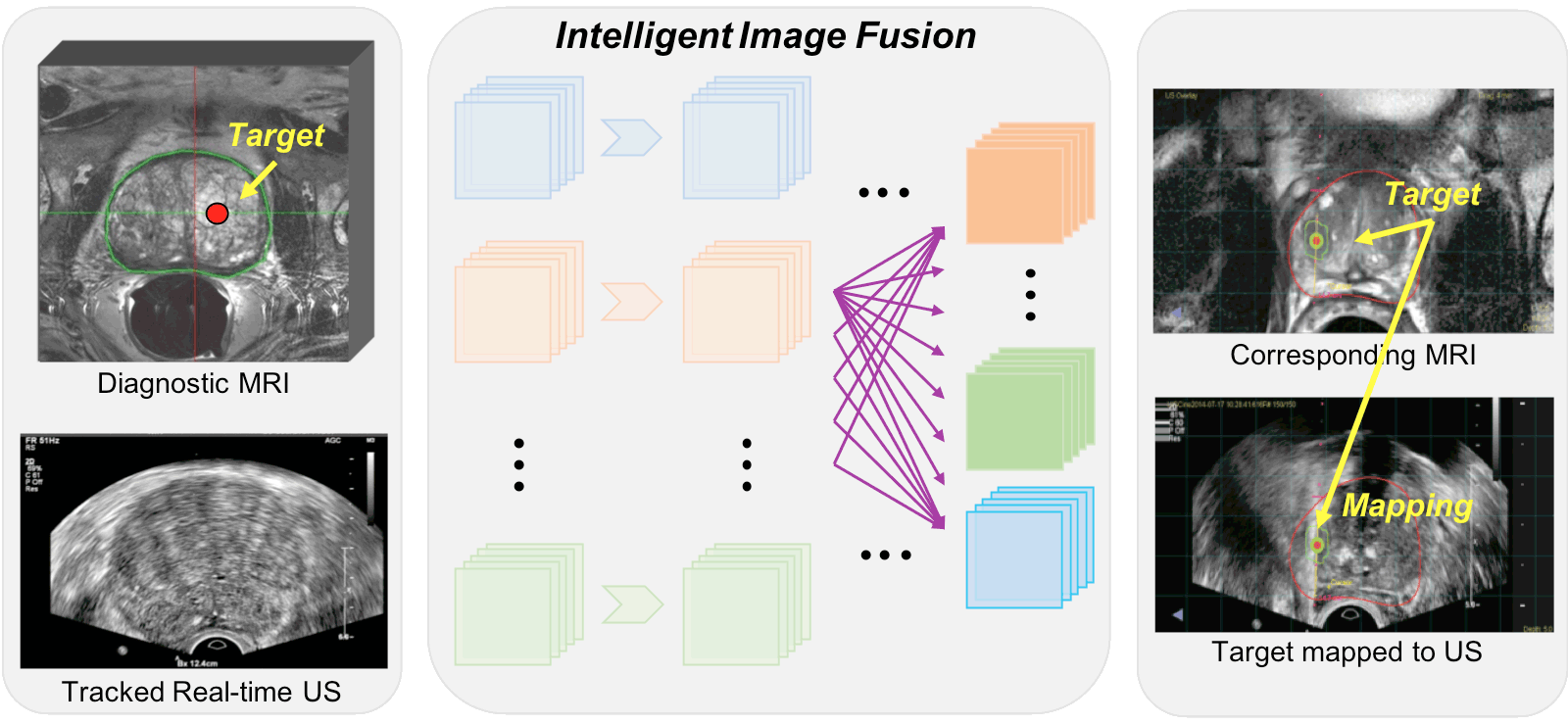
Prostate cancer is one of the most common cancer types among men in the United States. Recent clinical studies show that multi-parametric magnetic resonance imaging (mpMRI) can help identify clinically significant prostate cancer prior to biopsy. The related research has resulted in the development of image-based approaches to evaluate a man’s risk of having prostate cancer. In parallel, the fusion of MRI and transrectal ultrasound (TRUS), benefitted by the good sensitivity and specificity of mpMRI in identifying suspicious prostate cancer regions, has been demonstrated the biopsy yield improvement of up to 30%. Image registration is a critical component of the image fusion process. The goal of the project is to develop intelligent methods for consistent and accurate MRI-TRUS registration, which in turn will help improve the biopsy yield of MRI suspicious lesions and achieve better accuracy for local treatment. The project is a collaborative effort with the National Institutes of Health (NIH).
This work is partially supported by National Institute of Biomedical Imaging and Bioengineering of the National Institutes of Health under award R21EB028001 and through an NIH Bench-to-Bedside award made possible by the National Cancer Institute.


